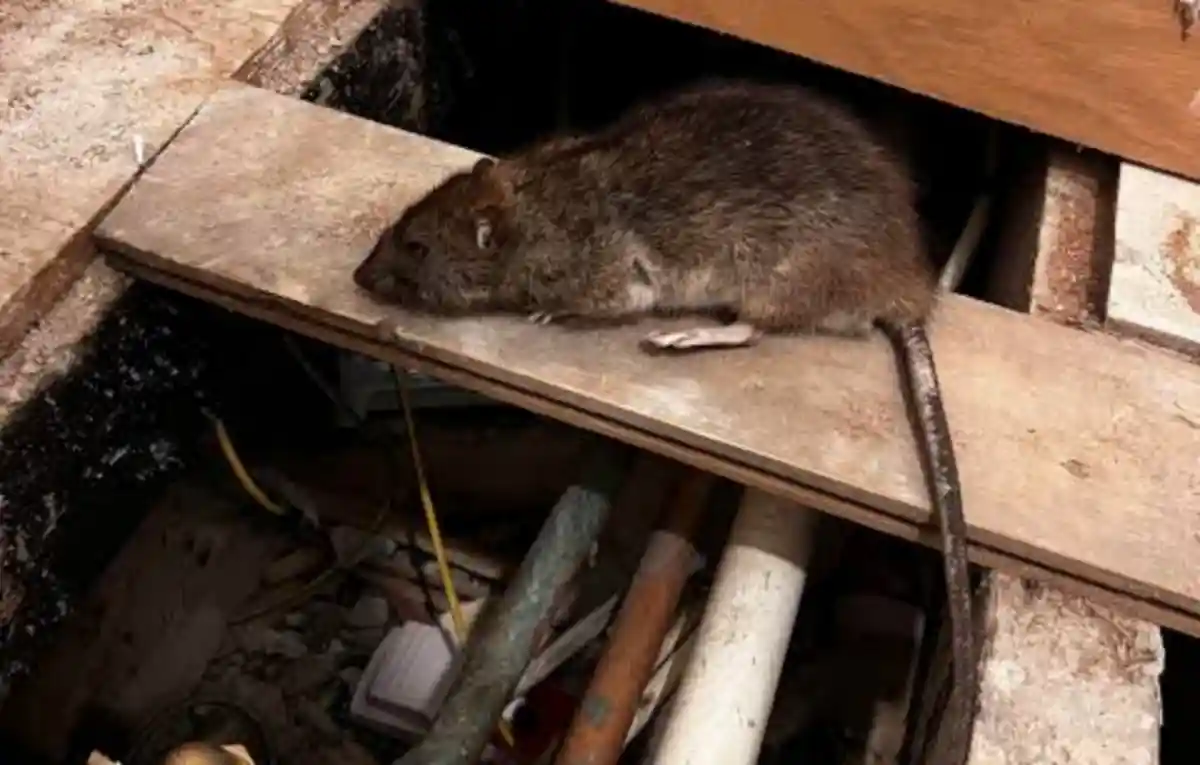Can I sue my landlord for rat infestation? Yes, you can. Let’s examine a scenario. So, you move into a new place, and before you have even had a chance to unpack everything, you see a big rat in your closet. Some have had this experience, and for the next few months, all the property manager may do is send a pest control company to set traps. No poison is used, despite your repeated requests. Rats are not only enormous but are also incredibly bold, often avoiding the traps entirely. I’ve even had to deal with rats walking on me while I was asleep on my couch living in Washington State and had to move out. The question is, can you sue your landlord for the infestation? If you are terrified of rats, as your children, you might be considering a refund for the months you have had to endure these horrific living conditions.
Now, understand that rats can pose serious health risks. Their droppings and the parasites they carry can make you sick, not to mention the foul odors they produce. They can also cause significant damage to a property, from the walls to the insulation. Generally, it is the landlord’s responsibility to handle rodent infestations. However, some might try to blame the tenant and refuse to cover the costs of extermination, cleaning, or repairs. They might even attempt to keep the tenant’s security deposit.
Can I Sue My Landlord for Rat Infestation?

Landlords are generally required to take reasonable steps to ensure that rental properties are free from health hazards, including rat infestations. Similarly, tenants are responsible for maintaining a clean living environment to prevent pest infestations and mold growth. Given that rats are known to carry diseases, they are considered a significant health risk. If your landlord is aware of the rat infestation and has not taken adequate steps to address it, they may be failing in their duty to provide a safe living space.
I would recommend reaching out to your City’s Code Enforcement office to see if they can assist you. They may issue a notice to your landlord, requiring them to rectify the situation. Alternatively, the Health Department may be able to help, given that rats are known to carry diseases.
When you contact the City, ask about your landlord’s compliance with local landlord-tenant ordinances. It’s not uncommon for landlords to be in violation of these regulations, which can work in your favor.
Before taking legal action, make sure you have provided your landlord with written notice of the rat infestation. You can then file a ‘Tenant Assertion’ with the General District Court. The court may allow you to break your lease without penalty and could potentially award you a refund of some of your rent payments. I would also recommend contacting both the local building department and the health department to report the rat problem.
How to Sue Your Landlord for Rat Infestation
As a tenant, if you find a rat in your home, you can ask your landlord to fix it. If they say no, you can take them to court over the mouse problem. When you see any pest problem, you should start getting ready to sue your landlord right away.
1. Gather Your Necessary Evidence
The first thing to do is to gather proof of the rat problem in your home. Here’s what you should do:
- Make a timeline starting from when you first saw the mice until now. Write down any talks with your landlord or their workers, like maintenance people.
- Take pictures that show the mouse problem.
- Pictures that demonstrate you have a tidy house.
- A recommendation letter from a past landlord
2. Know Your State’s Rental Laws
Get to know your tenant rights. Many places have special laws for renters and groups that can help. Just do these steps:
- Read your lease again.
- Check your state’s rules. For instance, what does your landlord have to do to fix things?
- Find a group that helps renters.
- Can the renter group provide cheap legal help? Do they have ready-to-use legal papers?
3. Compose a Letter of Demand
The good news is, that you might not have to go to small claims court if you start by writing a letter to your landlord asking them to fix the rodent problem and its effects. In your letter, make sure to include, explain, or do the following:
- Make sure you notify them about the pest problem if you haven’t already.
- Check and see if there’s any damage to the rental’s walls, wiring, insulation, or structure.
- Inform them if you’ve already taken care of the issue or if you want them to handle it. Share information about how much you paid or any cost estimates you got.
4. Compose a Letter of Demand
You might not need to go to small claims court if you start by writing a letter asking your landlord to solve the rodent problem and its effects. In your letter, make sure to include, explain, or do the following:
- Let them know about the bug problem if you haven’t already.
- Ask if anything is broken in the rented space, like walls, wires, or insulation.
- Let them know if you’ve already had the service done or if you’d like them to handle it. Also, share info about the cost or any estimates you’ve asked for.
- Tell them if there’s poop or pee left from the infestation. If yes, say you need a special cleanup, not just regular cleaning.
- Requests payment for pest control and cleanup expenses by a specific due date.
- Says you’d like a discount on your rent, starting from when you first told them about the bug problem.
Next, write your signature and the date at the bottom of the letter. After that, send it using USPS registered mail, and make sure to request delivery confirmation.
5. Start a Small Claims Court Case
If your landlord does not do what you ask, you can take them to small claims court. You can ask for money to cover pest control and cleaning. You can also request compensation for staying in a hotel when your place wasn’t livable or during the time your landlord had to fix things.
You have to figure out where to file your small claims case in your local area. Usually, it will be one of these options:
- File in the place where the owner lives.
- File in the rental area.
Your lease might say where arguments should be sorted out.
Dealing with this process can take a lot of time, especially if you have rats running around. Getting a lawyer can make it faster, but that can cost a lot.





